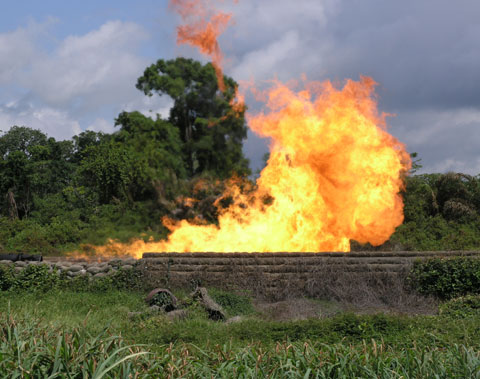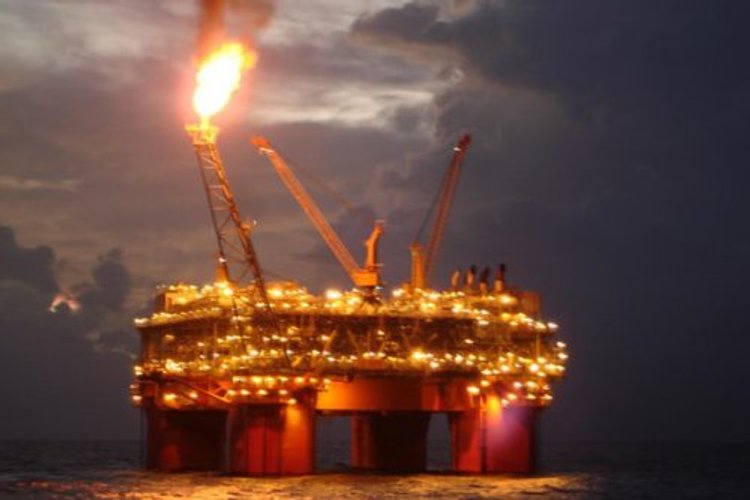CONCERNS over the wasteful practice of gas flaring in the country were rekindled recently by the House of Representatives, which threatened to sanction oil companies engaged in the profligate habit. Deploring the loss of about N150 billion to flaring between January and April 2023 and other substantial losses over the past 10 years, legislators asked the National Oil Spill Detection and Response Agency to provide details of companies owing outstanding gas flaring violation fines. Following up, President Bola Tinubu should take very strong measures to end the practice and facilitate optimal utilisation and benefits from all the country’s vast energy resources.
Gas flaring is associated with the burning of crude oil to extract petrol and other by-products. The fracking, or standard process of refining crude oil has contributed to environmental degradation and global warming. According to the World Bank, it releases pollutants like carbon monoxide, carbon dioxide, sulphur dioxide, polycyclic aromatic hydrocarbons, and soot.
Children in the host communities are adversely impacted by gas flaring, with many suffering from respiratory diseases, fever, and diarrhoea. They also experience stunted growth, wasting, and underweight issues. Toxic pollutants similarly damage the environment, killing off plants and animals, despoiling the soil and water, while impoverishing the host communities.
NOSDRA’s 2022 Nigerian Gas Flare Tracker showed that Nigeria lost tonnes of gas, including useful natural gas valued at $790 million, to gas flaring. This equated to enough potential electricity that could provide for 511 million persons. Fines imposed on International Oil Companies and others for gas wastage were valued at $450 million; but these are considered largely too little, and most has not been paid.
Without further delay, gas flaring should be stopped altogether. The fines amount to a pittance when compared to the enormous revenues lost. In 2022, the government estimated the value of Nigeria’s gas reserves at $803.4 trillion. Although there has been some reduction in global gas flaring volumes, Nigeria remains one of the top nine countries in gas flaring. The World Bank’s 2023 Global Gas Flaring Tracker Report revealed that despite reducing it by 20 percent between 2021 and 2022, Nigeria burnt between 5500bcm and 7,550bcm between 2018 and 2022. It shares the gas flaring profile with Russia, Iraq, Iran, Algeria, Venezuela, the United States, Mexico, and Libya. Together, the nine account for almost three-quarters of global gas-flare.

Gas flaring persists because the oil companies, taking advantage of Nigeria’s poor regulatory oversight and pervasive corruption, prefer to pay the meagre fines instead of developing the resource for domestic consumption and export, and as raw material for other industries.
Nigeria is ill-served by its leaders and regulators. With 206.53 trillion cubic feet, the world’s ninth largest, it has more gas reserves than crude oil,which at 37.05 billion barrels, is feared may run out in three decades at optimum daily production rate. But the valuable resource is frittered away instead of being harnessed for the country’s benefit.
While Nigeria’s gas exports improved due to global shortfalls caused by the Russia-Ukraine war, it continues to lag in comparison with other countries with smaller gas reserves. Its highest earning from natural gas export in five years was N2.8 trillion for 700,000 tonnes of Liquefied Petroleum Gas in 2022. Comparatively, Algeria with 159tcf of reserves (the world’s11th largest), exported 19.7 billion tonnes, according to Reuters, Egypt with 77.2tcf, exported 8.0 million tonnes of LNG earning $8.4 billion. Angola, with13.5tcf, exported gas products valued at $1.49 billion.
The Petroleum Industry Act mandates the IOCs to engage and compensate the communities affected by degradation from oil and gas exploration and refining, but the regulators have not adequately enforced the harnessing of gas beyond fines and compensation. This flaw sabotages the campaign to utilise and commercialise it. Strict regulations should be backed by the political will to ensure its full exploitation. The government should increase the fines and impose harsher penalties on companies flaring gas during crude oil production. Increasingly, enhanced technology tools should be deployed to track flaring by oil companies.
Government imposed a penalty of $2 per million cf for gas flared in 2018, and inaugurated a 12-member Flare-Gas Commercialisation Programme Team in 2022. Both failed to stop flaring. Lacking the necessary will, the government shifted its zero-flare gas deadlines from 2020 to 2025, despite being a signatory to the 2015 Paris Climate Change Agreement targeting zero emissions by 2060, and the Global Gas Flaring Partnership principles for global flare-out by 2030.
Nigeria must set and enforce a definitive deadline against gas flaring. As recommended by the House, regulatory bodies must “strengthen synergy to produce a practical and unified multi-level governance and policy coherence analysis that will stem gas flaring, protect the environment and boost energy supply.”
Dataphyte revealed that Nigeria generated only 8.0 million megawatts per hour of electricity but wasted a potential 35.4 million MW through gas flaring in 2020. A 2022 survey by the National Bureau of Statistics revealed that only 63.8 percent of Nigerian households have access to cooking gas, while the International Centre for Energy, Environment and Development, Abuja, stated that 93,00 Nigerians, mostly women and children, die from inhaling smoke while cooking with firewood.
Although the NBS said the price of 12.5kg of Liquefied Natural Gas has been dropping slightly since April, many households still cannot get affordable cooking gas, a classic case of scarcity amid abundance. The Muhammadu Buhari administration initiated the 614-kilometre Ajaokuta-Kaduna-Kano Gas Pipeline Project, but this has stalled due to the reported withdrawal of its financiers over alleged inflation of the contract sum.
Among other measures, Tinubu should prioritise the $2.5 billion project that is expected to transport up to 3.5billion cf of natural gas daily, facilitate access to cooking gas, generate 3,600MW of electricity, and feed the petrochemical plants. Other energy resources – water, wind and solar – should be similarly fully harnessed. The President and the National Assembly should collaborate to amend the PIA and enforce an end to gas flaring soonest.





